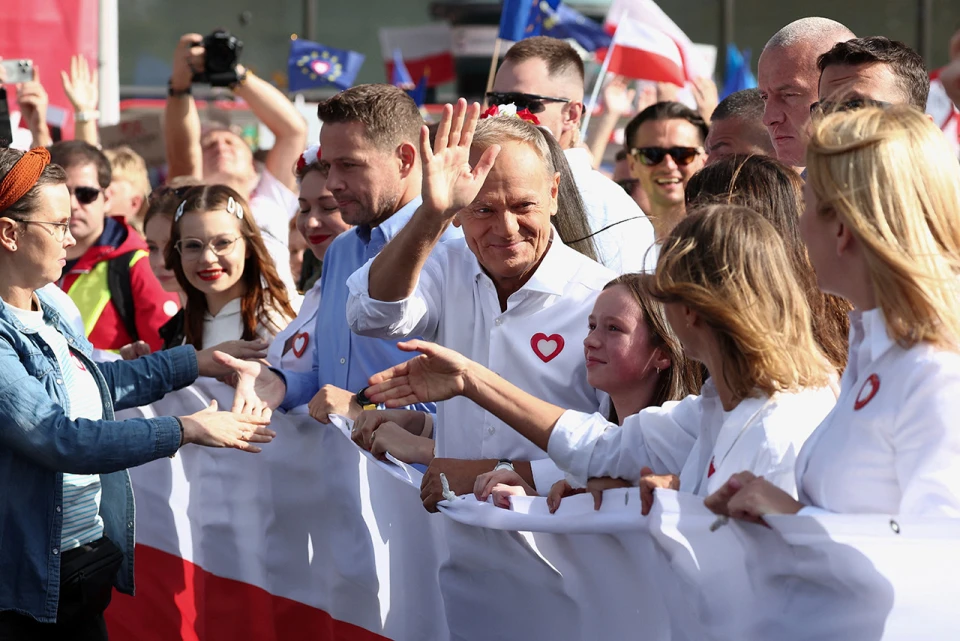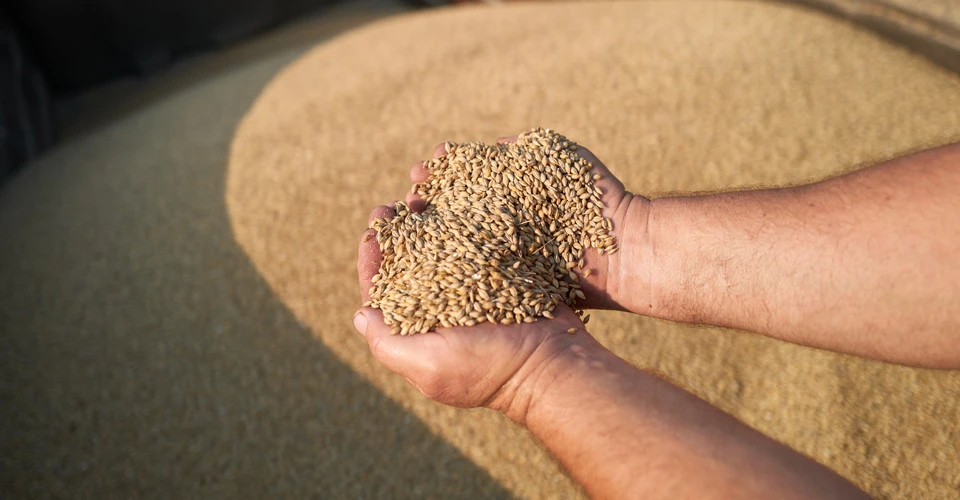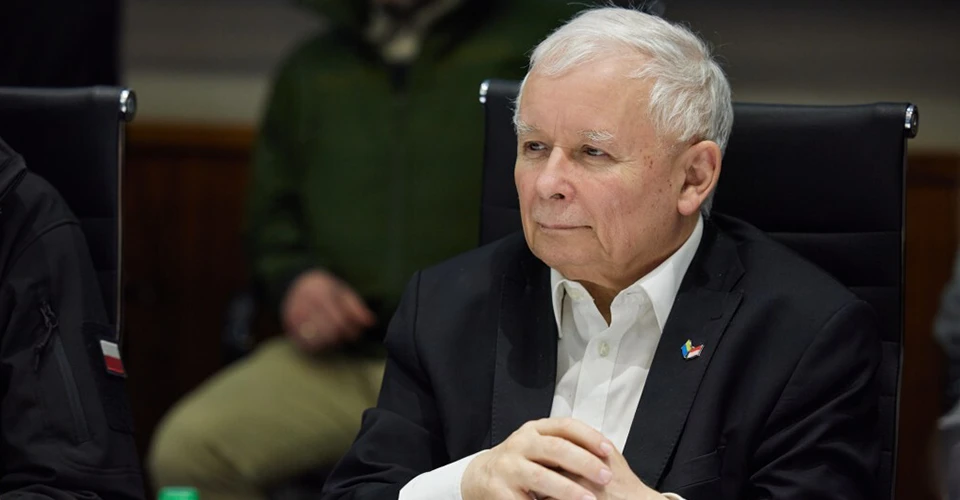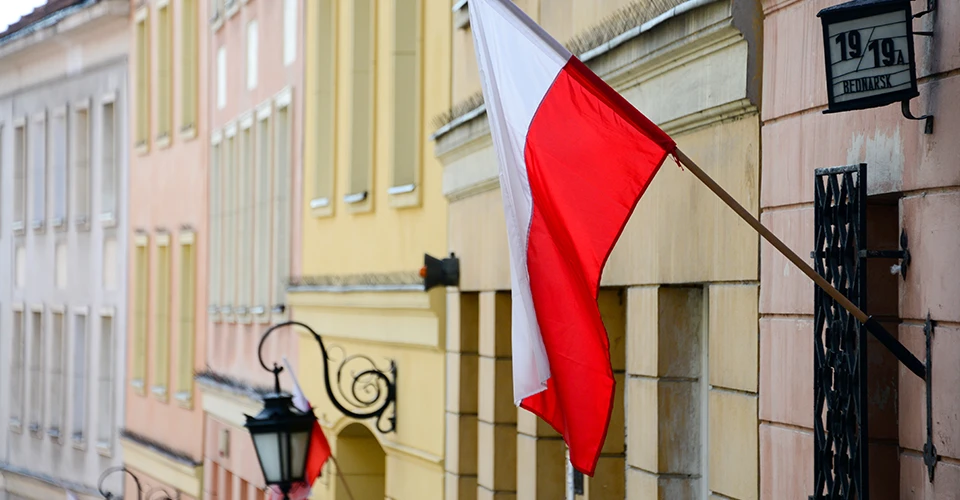
Polish elections: What to anticipate for Ukraine
As Poland gears up for its upcoming parliamentary elections, the nation finds itself amidst a fervent election campaign, which is also casting its shadow over Ukraine
In this article, we'll delve into the significance of these elections, introduce you to the key candidates vying for seats in the Polish parliament, and examine the implications for Ukraine.
Here's a preview of what you'll find in this piece:
- Polish parliamentary elections: an overview
- Key players in the 2023 elections and their stance on Ukraine
- Grain and refugee issues: how the nearing elections might impact the pressing Ukrainian concerns
- Anticipated outcomes: what changes may be on the horizon in Polish policy towards Ukraine
- Approaching the next election
Polish parliamentary elections: an overview
On Sunday, October 15, all across Poland, citizens will head to polling stations to elect new representatives for the government. It's essential to note that the parliament plays a crucial role in governing the country, making these elections pivotal for Poland's future.
Poland's parliamentary elections involve two chambers: the Senate (upper house) with 100 representatives and the Sejm (lower house) with 460 representatives. The Senate primarily functions to stabilize the political landscape, while the Sejm's members form the government and enact legislation. Parties can enter the Sejm if they secure at least 5% of the votes, and party blocs need at least 8%. However, it's important to understand that the percentages in the elections don't directly correlate with the composition of the parliament itself.
The critical moment for government formation is the creation of a coalition with a minimum of 231 deputies. The Prime Minister is chosen from this coalition and assembles a team of ministers. Here, Poland differs from the Ukrainian system, as the focal point of law is the Prime Minister, not the Cabinet of Ministers. It operates as a chancellorship system, where ministers act as authorized agents of the Prime Minister, while the Prime Minister retains legal responsibility.
The key players in the 2023 elections and their stance on Ukraine
According to early polls and predictions, five parties are expected to enter the Polish parliament: PiS, Civic Coalition, Confederation, Third Way, and New Left. Each of them is working hard to engage and unite their supporters in various ways.
The ruling party, PiS, which stands for Law and Justice, initially showed strong determination at the beginning of the Russian invasion. They set an example for Europe by actively helping Ukrainian refugees. Much of this determination came from the actions of ordinary Polish citizens who opened their doors to Ukrainians without hesitation. PiS wants to stay in power for a long time, so they are making significant efforts to mobilize their supporters. They are particularly focusing on appealing to farmers by highlighting agricultural issues. In other words, PiS' approach to Ukraine will depend on the sentiments of its current and potential supporters.
The Civic Platform, a key part of the Civic Coalition, is on a similar level to PiS. It includes Agrounia, led by Michał Kołodziejczak, who was one of the initiators of protests against the import of Ukrainian grain. The Civic Coalition aims to win support from farmers through his influence, as he comes from that background. According to polls, they are not losing ground to the ruling party. The opposition held its last campaign to rally its supporters two weeks before the elections. This campaign was called the "Million Hearts March" and took place on Sunday, October 1, attracting over a million Poles from across the country to Warsaw. However, during this march, the focus was mainly on domestic Polish issues and problems. The leader of the coalition, Donald Tusk, said, "I promise to end the Polish-Polish conflict the day after the election. If we remove the aggressor, there's no need for conflict." Additionally, the opposition promises to restore strong cooperation with the EU, which has cooled somewhat under the current government. Importantly for Ukrainians, Tusk expressed strong and confident support for Ukraine just a few days before the march, particularly regarding continued security assistance. This shows their consistent stance on Ukraine, in contrast to PiS.

Photo: Reuters
The Third Way party (Polish: Trzecia Droga, TD), led by Szymon Hołownia, seems to take a middle-of-the-road approach and doesn't strongly align with either side on critical issues. They aim to appeal to a broad spectrum of voters but risk getting overshadowed by more vocal competitors. Interestingly, they are also vying for the votes of Polish farmers, as they include the Polish Peasant Party, a historical advocate for rural interests since the 2000s.
The New Left (Polish: Nowa Lewica, NL) is an opposition party that strongly opposes the conservative decisions of PiS. It's a coalition of various leftist parties that together are gaining support and might become part of a future coalition formed by opposition parties.
The Confederation party (Polish: Konfederacja) is far-right. Among the candidates, the Confederation party stands out as openly anti-Ukrainian. Its leader was the sole deputy who refused to support a resolution in the Sejm calling on the EU and NATO to aid Ukraine in its conflict with Russia. Recent statements from Sławomir Mentzen regarding infrastructure repairs crucial for Ukrainian support, like key airports and railway tracks, underscore this stance. The Confederation party is also highly active on social media, with Mentzen using platforms like TikTok, Facebook, and YouTube extensively to promote his politics. However, it's important to remember that social media popularity doesn't always transform into votes in elections.

Photo: gettyimages
How upcoming elections impact Ukrainian issues: grain, refugees, and security
Election campaigns often stir things up in any society, including Poland. It's easier to get people's attention with important questions. Right now, the topics of Ukrainian refugees and grain for the people of Poland are hot issues. This is why politicians are making loud announcements before the elections. The mood among the Polish people has also changed somewhat, and politicians are taking advantage of this.
"The mood has gotten worse, and you can feel it. This includes things like Poles being tired of what's happening, the ongoing war, and the economic crisis. People in Poland are feeling a bit down because life has become harder," says Mykhailo Krasiuk, a political expert and member of the Polish Public Relations Association. "It's not a crisis, but there's some erosion."
While the grain issue might become less of a concern and reach some agreements, the topic of refugees will continue to be important in the Ukrainian matter in Polish politics. Currently, the Confederation is actively promoting this issue and gaining support on social media. However, the actions taken in this area will depend on the election results and the coalition that forms afterward. It's hard to predict these outcomes. Despite this uncertainty, preliminary forecasts suggest that some aid or benefits for Ukrainians might not be extended, though not necessarily canceled outright.
On the other hand, there's no doubt about the security topic, particularly the continued supply of weapons to Ukraine and the training of Ukrainian military personnel. This is assured due to NATO and the EU's consistent involvement in this process. Even the Confederation, known for its strong opinions, doesn't talk about ending support. Other political parties also show strong support in this regard.
"Security assistance is tied to NATO's presence, NATO's strategy, and American support," explains Mirosław Czech, a member of the Polish Diet and a public figure with multiple terms of experience. "It's connected to Ukraine's security, but it's also directly related to Poland's security."
What could change in Poland's policy towards Ukraine after the elections?
When we consider the possible outcomes of the Polish elections for Ukraine, we see different scenarios. There are three likely ways the parliament may be formed, depending on the election results.
Scenario 1: If PiS (Law and Justice party) wins a clear majority and can govern by itself, the focus on the grain issue may diminish over time, but the question of Ukraine joining the EU will remain important. In terms of politics, it will depend on public opinion.
Scenario 2: If the Civic Platform (Civic Coalition) wins a relative majority and forms a coalition with the New Left and the Third Way, Ukraine can expect continued support, especially considering Tusk's strong position.
Scenario 3: If PiS wins a relative majority but not an absolute majority, they may need to negotiate with the Confederation to form a government. This situation could be less favorable for Ukraine. Mykhailo Krasiuk warns that these parties don't differ significantly in their worldviews, and Ukraine's support might become a matter of compromise. If this happens, it could resemble Hungary's stance towards Ukraine during negotiations.
The outcome will also depend on the agreements made regarding the grain issue. These agreements will play a significant role in shaping Poland's future policy towards Ukraine.

Photo: gettyimages
As the next election approaches
Unfortunately, the ongoing uncertainty in Poland's political landscape won't subside after October 15, as it will be further fueled by the upcoming elections. Specifically, we're referring to the local elections expected in six months, where the Ukrainian issue will also be a significant focus.
"It's important to realize that Poland has entered a prolonged period of political turbulence," stresses Mykhailo Krasiuk. "The notion that things will settle down after the October 15 elections is mistaken. There won't be a lull, primarily because local elections are scheduled for spring 2024, where the Ukrainian matter remains highly relevant. Local authorities played a pivotal role in supporting refugees. In the fall of 2024, European Parliament elections will take place, followed by presidential elections in 2025. In essence, over the next six months, there will be several substantial election campaigns, with Ukraine's topic playing a significant role."
For years, the Ukrainian factor has been a recurring theme in Polish elections, whether in discussions of historical memory, labor migration, or other contexts. The war has only amplified its significance.
- News













































